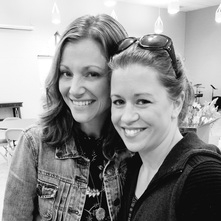
I don’t know what I expected the last time I wrote to you and hit publish with a lump in my throat. I figured I would hit a nerve; I knew I would ruffle feathers. And no, that’s not why I did it. But yes, I knew I had to do it anyway. But I didn’t expect to be stopped in Target by a friend whose sharing of my post caused confrontations in her actual life. I wasn’t prepared for the messages from people who worried their comments online had offended me, or those defending me against other people’s comments, or those worried that the disagreement that compelled me to write the piece had cost me a real-life friendship.
I’ll save you the suspense on that one: It hasn’t. But since then, I’ve been scratching my head, wondering, what can we learn here?
For one thing, I fear we have all but forgotten how to disagree with grace. This is me, raising my hand. Me too. Because here’s something I know to be true about politics: About many things that matter, we all see the same problems; we just disagree about the possible causes and solutions. It can be hard when people don’t think like you do. I know it is for me. It is especially frustrating when I really like the person in question, which leads me to Elizabeth.
She is brilliant and kind, sensitive and genuine. She’s the kind of girl about whom my dad quotes While You Were Sleeping and says, “You don’t know whether to hug her or arm wrestle her.” In my experience, you don’t have to wonder what she’s thinking. Maybe she isn’t everyone’s cup of tea. And maybe that’s why she reminds me of me. But the older I get, the deeper my appreciation for real people who tell it to me straight. But honesty isn’t the same as being a jerk. And the difference is what I fear we’ve lost (and what Elizabeth hasn't).
 Elizabeth and me, in real life
Elizabeth and me, in real life I should have confronted her privately, given her a chance to explain without an audience. But I guess because of the public nature of Facebook, I broke my own rule and disagreed with her publicly. Almost immediately, friends of hers had my back, the way people do in fights that aren’t theirs, in which she who speaks last wins. I didn’t need or even want their help, but I’m ashamed to admit it made me feel validated and that I didn't even consider how it made Elizabeth feel. She responded almost immediately, not defensively, but in defense. We went around a few times, leaving it as I figured we would: we agreed to disagree.
The next day, Elizabeth reached out privately: “I feel like maybe there’s something I need to repair,” she said. “Those other women always disagree with me, but this was the first time you did.” I assured her that nothing needed to be fixed. She asked me to lunch, but I couldn’t make it because I’d be at yoga. She decided to come too, even though she was late and risked the judgment of our snarky instructor. I don’t think she wanted to do yoga; I think she wanted look me in the eye. She understood something I was trying to avoid: conflict has trouble surviving presence. I think that’s why people are always braver (and less considerate) when commenting online than in person.
So, after class we talked awkwardly for a few minutes, and finally I said, “We’re good, okay? There’s nothing broken here.” She smiled. And though maybe things still felt tender, we knew it was true.
Our disagreement compelled me to compile my thoughts in a piece I shared with her, reopening our dialogue. She asked me careful questions about what I hoped would come from sharing something so personal. We talked more; I learned more about her heart.
And then I shared the piece it’s taken me two weeks to get over. The last one I’d ever want to be known for; the one thousands of people read. The next morning, Elizabeth shared it too. And it wasn’t because something I had said caused her to rethink everything; her opinion hadn’t changed. But maybe because of our discussion, she reconsidered the potential impact of her words, the timing in which she had chosen to share them, or the tone. And here's what makes her response truly remarkable to me: the impact to people she cared about mattered more to her than proclaiming her opinion in that moment. She wanted us to agree. So did I. And though we came closer to understanding each other, we continue to disagree. But I admired the way she pressed in, gently, asking questions and paying attention to the answers. It is teaching me something.

Admittedly, I engaged in debate with other women that were never going to consider my point. I saw them talking about me like I would never see it. They are educated mothers, apparent good people, but they were skewering me—a stranger— on a friend’s Facebook page. My fingers hovered over the keys while I considered whether to respond, and here’s why I decided to do it: I needed them to acknowledge what they were doing. I needed them to remember I wasn’t some abstract idea; I was a thinking, feeling, actual person, not an anonymous avatar who stirred the pot for fun. Unfortunately, being reminded of my humanity did nothing for these women. I disengaged, thanked God I don’t have to encounter them in real life, and moved on .
When it all started to die down, I arrived, weary, at my MOPS meeting, to a hug and sympathetic ear from Elizabeth, my real friend, who cares about my actual feelings despite not agreeing with all of my thoughts.
And here’s what I learned:
The Unfollow button is our friend, but we must be careful not to surround ourselves with people with whom we always agree. Disagreement, with people who love us, can be a healthy part of understanding each other, our beliefs and even ourselves. That said, debating with people who are completely unwilling to listen or consider another viewpoint is a waste of time. Let us not waste our breath on those arguments or be those people.
If you’re a jerk online, you’re probably a jerk in real life. Behind every Facebook page or blog post is an actual person who took more time to craft their piece than you’re taking to dismantle it in the comments. All opinions don’t need to be shared. The Golden Rule applies here, as always.
We can debate on Facebook if we must, but it’s always a poor substitute for meaningful, open dialogue within the confines of real friendships in living rooms and on front porches, over a meal or a drink or anywhere we can look each other in the eye.
We must resist the urge to distill whole people down to one statement or belief. This is so hard, isn’t it? It would be so much easier to classify people as worth our time or not, and bumper stickers, lawn signs and Facebook rants all seem to be helpful tools to get us there. But, as a Christian, I’m called to live in this tension. It’s not just part of the job; it is the job. I’m called to share the love of God with the people around me. All of the people. Not only the ones I like or agree with. I didn’t enjoy being reduced to my most controversial and raw blog post. It’s safe to say most people wouldn't.
When I walked away from the keyboard that day, I made my family dinner and tucked my kids into bed and kissed my husband. Right now, I’ll walk away to wake up my daughters, make breakfast and lunch and walk to the bus stop and then go on having conversations and making mistakes in my actual life, just like you will. Because the whole of my person and value could never be summed up in a post. No one’s can. We would do well to remember that. Choosing civility is truly the least we can do.
 RSS Feed
RSS Feed


